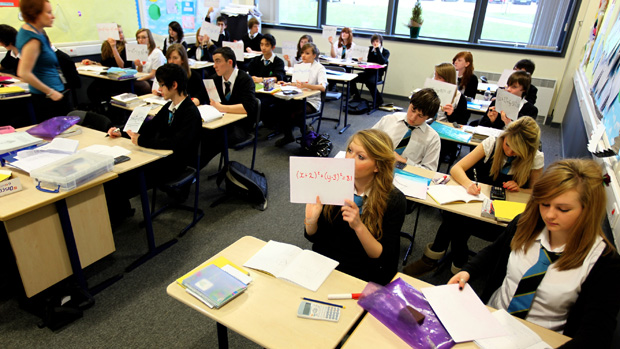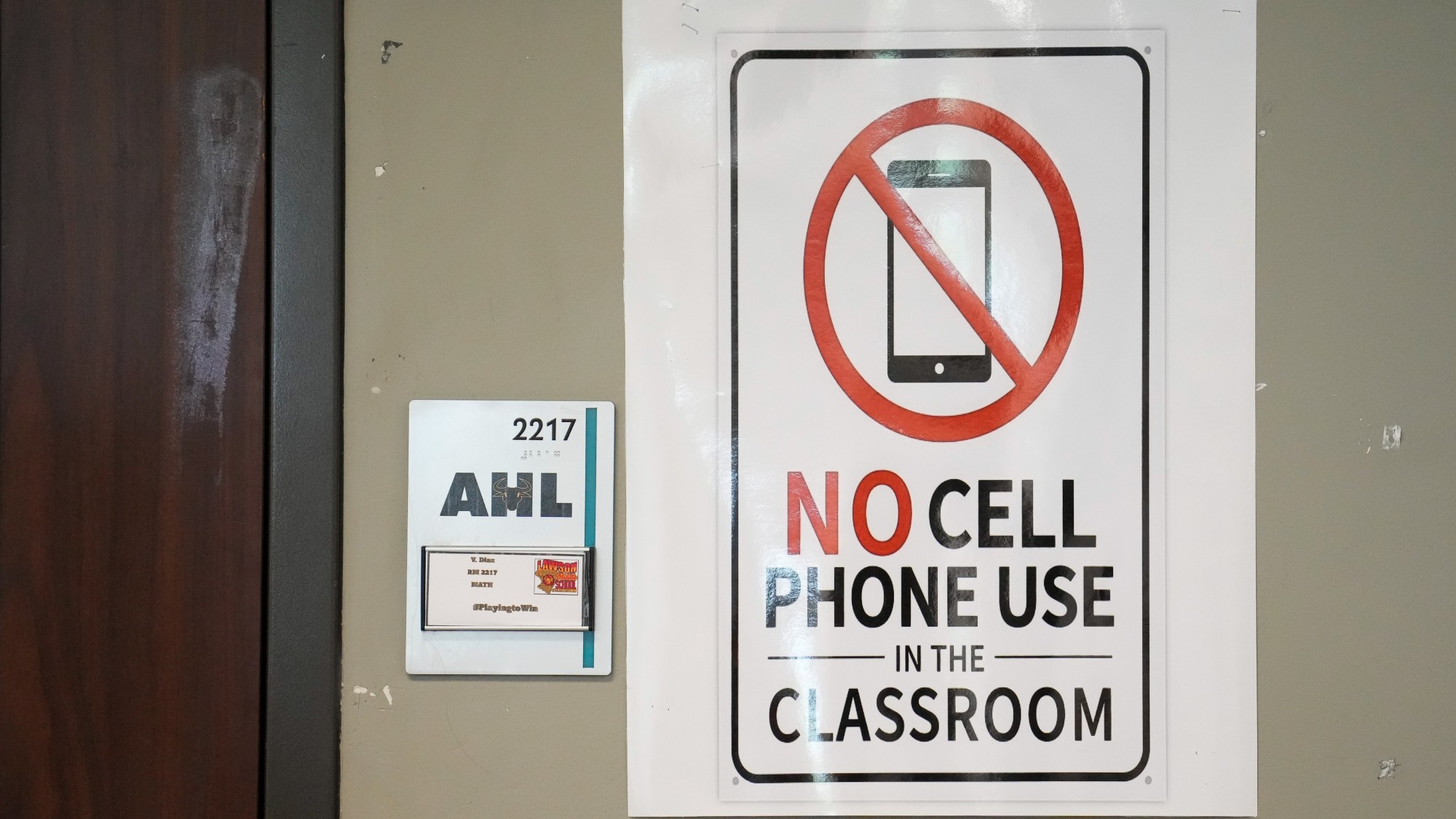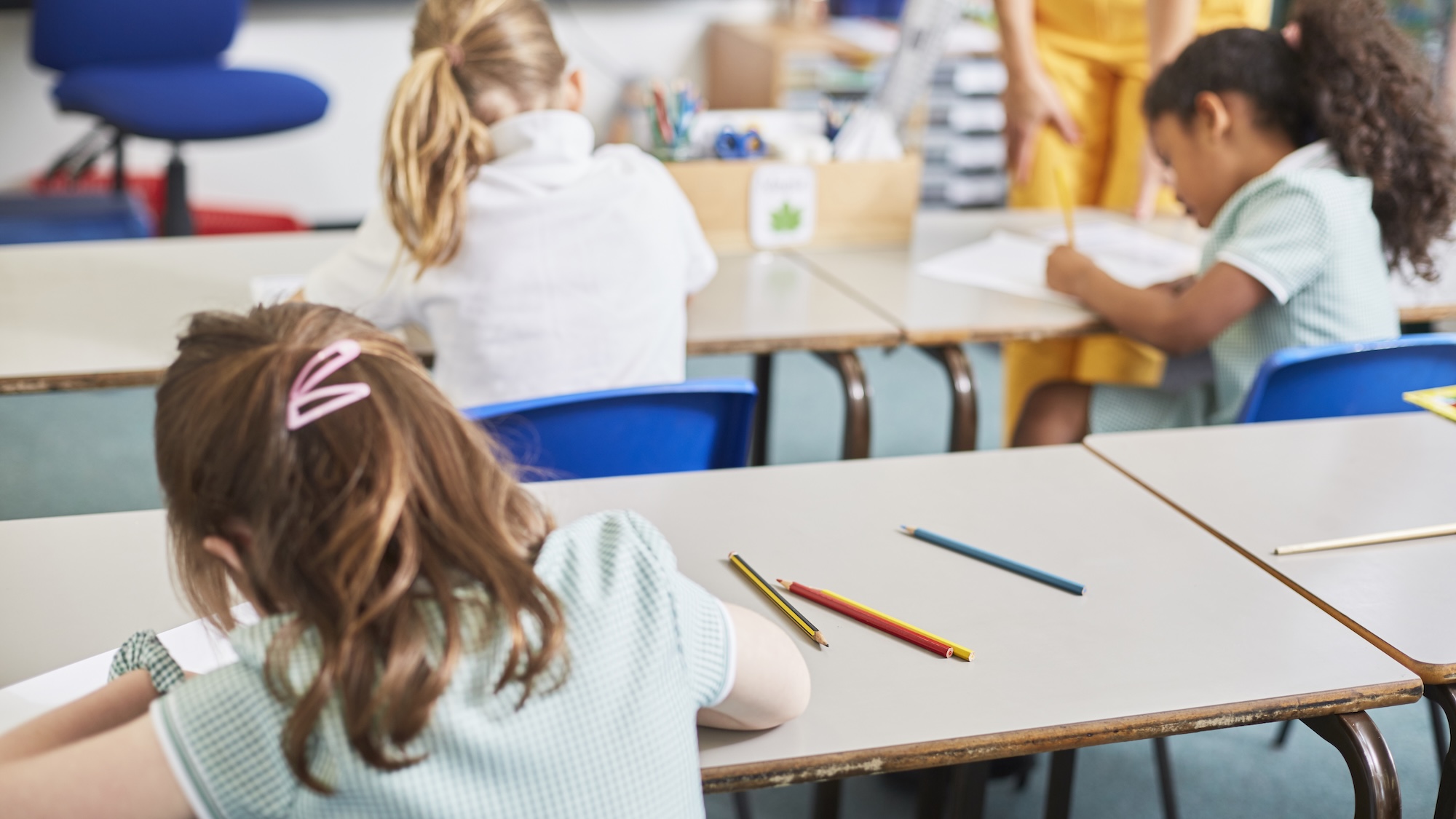School places for all could become 'undeliverable'
Local councils call for more powers allowing them to open new state secondary schools

A free daily email with the biggest news stories of the day – and the best features from TheWeek.com
You are now subscribed
Your newsletter sign-up was successful
Local authorities could soon be unable to fulfil their obligation to find all children a secondary school place, council chiefs have warned.
Legally, councils must provide a school place for all children in their area, but the Local Government Association (LGA) has warned this could become "undeliverable" without more power to open new secondary schools and expand existing ones.
Since the passing of the 2011 Education Act, all new state schools must be free schools or academies, both of which are funded directly by the Department for Education and independent of local authority control.
The Week
Escape your echo chamber. Get the facts behind the news, plus analysis from multiple perspectives.

Sign up for The Week's Free Newsletters
From our morning news briefing to a weekly Good News Newsletter, get the best of The Week delivered directly to your inbox.
From our morning news briefing to a weekly Good News Newsletter, get the best of The Week delivered directly to your inbox.
Under the current system, a local authority must seek proposals for a free school or academy if it needs more school places. However, Councillor Brigid Jones, Birmingham's cabinet member for children's services, told the BBC that convincing academies and free schools to open in the right places at the right times "can be a nightmare".
Roy Perry, the LGA's children and young people chairman, told ITV News: "If academies are not willing to expand, then powers to create new schools should be returned to local authorities themselves if they are unable to secure high quality free school sponsors in their communities."
One in six state secondary schools are already at or overcapacity, the BBC reports, with the number of applicants getting a place at their preferred school dropping steadily, from 85.2 per cent in 2014 to 84.2 per cent last year. Schools in London are the most overburdened, with only 68.9 per cent of children aged 11 offered their first choice of secondary school.
However, a Department for Education spokesman said that the government had confidence in the current system.
A free daily email with the biggest news stories of the day – and the best features from TheWeek.com
"Instead of scaremongering, the LGA needs to ensure they use the funds provided by government to secure enough places," the spokesman said. "We are confident there are enough quality sponsors to meet demand."
-
 The 8 best TV shows of the 1960s
The 8 best TV shows of the 1960sThe standout shows of this decade take viewers from outer space to the Wild West
-
 Microdramas are booming
Microdramas are boomingUnder the radar Scroll to watch a whole movie
-
 The Olympic timekeepers keeping the Games on track
The Olympic timekeepers keeping the Games on trackUnder the Radar Swiss watchmaking giant Omega has been at the finish line of every Olympic Games for nearly 100 years
-
 The pros and cons of banning cellphones in classrooms
The pros and cons of banning cellphones in classroomsPros and cons The devices could be major distractions
-
 School phone bans: Why they're spreading
School phone bans: Why they're spreadingFeature 17 states are imposing all-day phone bans in schools
-
 Schools: The return of a dreaded fitness test
Schools: The return of a dreaded fitness testFeature Donald Trump is bringing the Presidential Fitness Test back to classrooms nationwide
-
 Send reforms: government's battle over special educational needs
Send reforms: government's battle over special educational needsThe Explainer Current system in 'crisis' but parents fear overhaul will leave many young people behind
-
 Education: Can public schools be religious?
Education: Can public schools be religious?Feature A Supreme Court seems ready to rule in favor of religious charter schools in Oklahoma, which could reshape public education
-
 America's academic brain drain has begun
America's academic brain drain has begunIN THE SPOTLIGHT As the Trump administration targets universities and teachers, educators are eying greener academic pastures elsewhere — and other nations are starting to take notice
-
 Schools' Send crisis: how can it be fixed?
Schools' Send crisis: how can it be fixed?Today's Big Question Government urged to reform support for children with special educational needs and disabilities and save councils from bankruptcy
-
 Unschooling: the radical education trend raising eyebrows
Unschooling: the radical education trend raising eyebrowsUnder the radar Some parents are letting their children lead their education